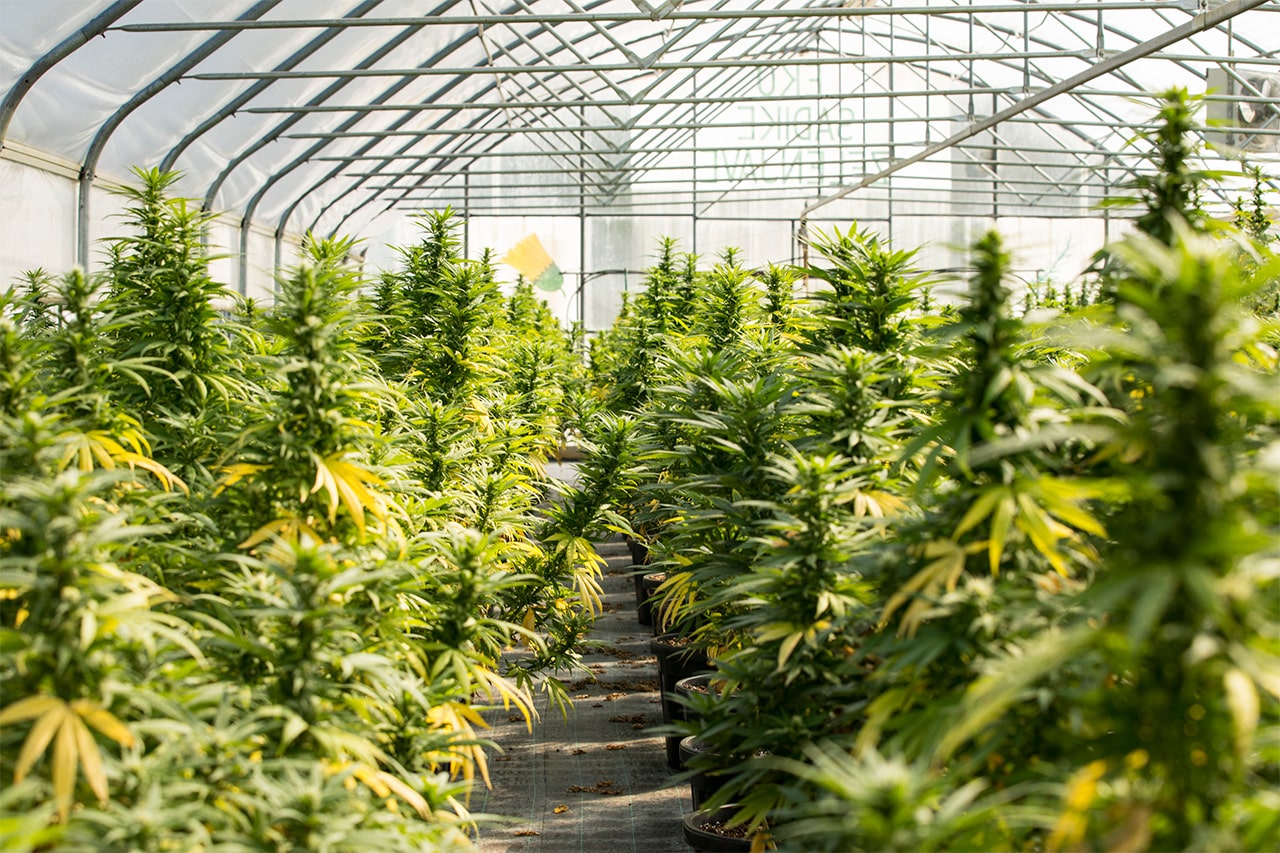We are here to help Healthcare Professionals
GROW provides training, education, and support for all healthcare professionals (HCPs) who want to learn about prescribed cannabis medicines.


Healthcare Professionals

Join our Doctor Portal using the button above to access our educational materials, product list, and network with other HCPs. Here you can also find our Journal Club for updates on medical cannabis research.
Licensed Producers

From flowers and extracts to capsules and vape cartridges, GROW is the one-stop shop for the widest range of quality medical cannabis products. With excellent supply chain access and sustainable stock, we promise top-quality service together with our local logistics partners. All leading global producers work with us.
Frequently Asked Questions


Yes. Cannabis-based medicinal products (CBMPs) were legalised on the 1st November 2018, moving from a Schedule 1 product to a Schedule 2 product, reflecting their potential for medical use.
Cannabis-based medicinal products (CBMPs) can be prescribed by a consultant, when appropriate, within their specialty area when there is an unmet clinical need.
There are three licensed cannabinoid medicines – Epidiolex for rare forms of epilepsy, Sativex for multiple sclerosis, and Nabilone for chemotherapy-induced nausea and vomiting. However, only a handful of prescriptions for these products have been issued in the NHS to date.
The majority of cannabis-based medicinal products (CBMPs) are unlicensed, with most patients taking them for chronic pain and/or mental health conditions. They must be written on a private prescription and are typically issued by private clinics specialising in medical cannabis treatment.
Licensed cannabis-based medicinal products (CBMPs) are available in the UK for multiple sclerosis, nausea and vomiting associated with chemotherapy, and certain rare forms of epilepsy. However, most CBMPs are unlicensed.
The majority of CBMPs in the UK are prescribed for chronic pain, including fibromyalgia, as well as for pain associated with a range of other conditions such as endometriosis, inflammatory bowel disease (e.g ulcerative colitis) and migraines. Additional conditions being managed with medical cannabis also include psychiatric conditions such as anxiety, depression, insomnia, and post-traumatic stress disorder (PTSD).
A full list of conditions for which medical cannabis can be prescribed at Integro Medical Clinics can be accessed here: https://www.integroclinics.com/conditions
For years, political prohibition and societal stigma slowed both acceptance of cannabis for medicinal purposes and research into its potential benefits. However, globally, as more and more countries are legalising medical cannabis, perceptions are now changing, and research interest has grown exponentially. There are many clinical trials supporting the use of medical cannabis in a range of different conditions; the majority are either small-scale randomised controlled trials or observational in nature.
Navigate to the ‘healthcare professionals' section of this website to find out more about the evidence base for medical cannabis in: chronic pain, psychiatric disorders, inflammatory bowel disease, and rheumatoid conditions.
Grow Pharma also host a Journal Club which is published approximately every 3 weeks, highlighting two recent clinical papers relevant to the field of medical cannabis/cannabinoids. To sign up to the Journal Club mailing list, click on this link: http://eepurl.com/hNK1_T
There are several ongoing trials throughout the UK, however the most publicised has been the CANPAIN trial, which recently gained SEC approval for an initial feasibility study. If successful and no changes are required then the CANPAIN study will be a pragmatic non-randomised, non-blinded real-world trial of the safety, tolerability, and effectiveness of a cannabis-based medicinal product (CBMP) for the treatment of chronic non-cancer pain compared against matched controls receiving standard of care pain management.
The study could run for 3 years but there will be an interim analysis after 12 months with a planned sample size of at least 5,000 participants per group, with each patient completing a minimum of 12-months treatment. The CBMP used will be an 8:8 (8% THC, 8% CBD) balanced flower inhaled by steam using a handheld device with flow counting and Bluetooth connectivity.
For more details on the CANPAIN study, follow this link:
Pain consultants who would like to become involved in this clinical trial can contact LVL Health at [email protected]
Data from observational clinical trials has revealed that patients on medical cannabis are able to improve their pain, anxiety, and mood levels, and as a consequence, reduce the doses of opioids, benzodiazepines, and antidepressants they may be taking. A recent epidemiological study in the USA found that increased availability of cannabis (recreational and/or medical) was associated with a decrease in deaths associated with opioids.
There are a number of clinics across the UK that specialise in prescribing medical cannabis to patients that need it.
Yes. To speed up the process, patients should bring along their GP records.
No.
Cannabis-based medicinal products (CBMPs) can only be prescribed by GMC-registered specialist doctors. As medicinal products, CBMPs are regulated by the Medicines and Healthcare products Regulatory Agency (MHRA); the organisation responsible for ensuring the safety, quality, and effectiveness of medicines in the UK.
Over-the-counter (OTC) CBD products can be purchased without a prescription in pharmacies or online. They are not medicinal products as they are regulated by the Food Standards Agency (FSA). In order to be exempt from MHRA control, OTC CBD products must contain no more than 0.3% THC.
CBD and THC act on different receptors within the human body, producing separate effects. While there is some evidence supporting the use of CBD alone for conditions such as anxiety, epilepsy, and autism, doses used in the literature tend to be considerably higher than those taken by most patients. For the majority of conditions, including chronic pain, high-THC and balanced THC:CBD medical cannabis preparations appear to be the most effective.
Response to cannabis is individualised so there is unlikely to be one THC:CBD ratio or dose that is suitable for all patients with a particular condition. This is due to the large number of compounds in cannabis, their wide-ranging effects on receptors and cells in different parts of the body, and the variable rate at which they are metabolised.
When introducing THC for the first time in a patient, the general advice is to adopt a “start low, go slow” approach, gradually increasing the dose until a balance between satisfactory symptom control and minimal adverse effects is reached. Some patients may take a higher THC dose in the evening and a lower dose during the day in order to not interfere with workplace functioning and driving. The maximum recommended daily dose of THC is 40mg.
Smoking medical cannabis is illegal.
Medical cannabis can be taken in different forms depending on the desired speed of onset and duration of action.
For rapid relief of symptoms, medical cannabis in flower form can be inhaled using a vaporiser. Vape cartridges are also available.
For slower, longer-lasting release, medical cannabis can be taken sublingually in the form of an oil or swallowed in capsule form.
Consultation costs at medical cannabis clinics typically range from £50-100. Medication cost varies depending on the mode of administration, quantity, and THC:CBD dose, but most cost between £50 and £500 per month.
The most common side-effects from taking medical cannabis are dizziness, fatigue, euphoria, amnesia, disorientation, blurred vision, diarrhoea, somnolence, and dry mouth. These reactions are usually mild to moderate and resolve within a few days even if treatment is continued. The incidence of serious adverse events among patients taking medical cannabis has been shown to not be significantly different to that of a matched control group over a 1-year period.
Sativex, which is a cannabinoid medication licensed for multiple sclerosis in the UK, contains both THC and CBD, therefore its summary of product characteristics (SmPC) serves as a useful reference.
It can be accessed here: https://www.medicines.org.uk/emc/product/602/smpc#gref
In 2018, the Office for National Statistics reported that cannabis was a factor (not necessarily attributable) in 22 deaths in England and Wales. This compares to 210 deaths from paracetamol, 518 from antidepressants, and 2,208 from any opiate. Cannabinoid receptors are not present in the brainstem (unlike e.g opioid receptors), which may explain the lack of cannabis-related fatalities due to respiratory depression.
Sativex, which is a cannabinoid medication licensed for multiple sclerosis in the UK, contains both THC and CBD, therefore its summary of product characteristics (SmPC) serves as a useful reference.
It can be accessed here: https://www.medicines.org.uk/emc/product/602/smpc#gref
For patient enquiries - [email protected]
For doctor enquiries - [email protected]
Healthcare professionals can also sign up to our Doctor Portal.
(https://doctors.grow-pharma.com).


